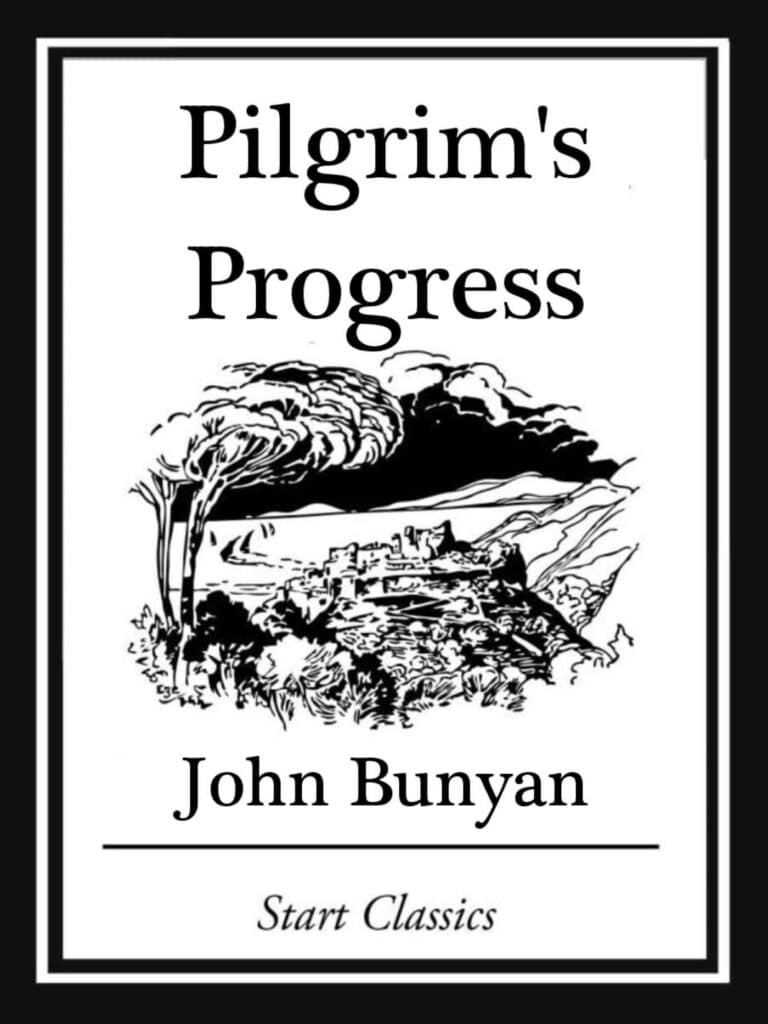Introduction
If you’ve ever sat in a church pew and listened to the congregation sing “Sweet Beulah Land” with tears in their eyes, you know there’s something deeply moving about that phrase. Beulah Land isn’t just a pretty set of words—it carries weight, history, and hope. Generations of Christians have sung about it, preached about it, and longed for it. But what does Beulah Land mean, and why does it still stir our hearts today?
The term itself comes straight from the Bible, tucked into Isaiah 62:4. In translations like the King James Version (KJV), the New King James Version (NKJV), and the New International Version (NIV), the word Beulah is used: “You will be called Hephzibah, and your land Beulah; for the Lord will take delight in you, and your land will be married.” Other translations, such as the ESV and NASB, translate the Hebrew word directly as “married.” From that single verse, a whole world of imagery has grown. Writers like John Bunyan in Pilgrim’s Progress and hymnwriters in both the 19th and 20th centuries expanded the picture until “Beulah Land” became a shorthand for heaven, joy, and the nearness of God.
What makes the phrase so powerful is that it speaks to three longings every believer carries: the assurance that God delights in us, the hope of restoration in broken seasons, and the promise of a heavenly home. That’s why Christians today still find themselves humming its melodies or quoting its words. Beulah Land is more than an old-fashioned hymn lyric—it’s a reminder that we are loved, we belong, and our journey has a glorious destination.
1. The Biblical Root of “Beulah” (Isaiah 62:4)
To understand Beulah Land, we first need to go back to the one place the word Beulah actually appears in Scripture: Isaiah 62:4. The word itself is Hebrew and simply means “married.” In the King James Version, God says to His people,
“Thou shalt no more be termed Forsaken; neither shall thy land any more be termed Desolate: but thou shalt be called Hephzibah, and thy land Beulah: for the Lord delighteth in thee, and thy land shall be married.”
The contrast is striking. God’s people, once described as Forsaken and their land as Desolate, are given new names of honor and delight. Hephzibah means “my delight is in her,” and Beulah means “married.” Together they paint a picture of a broken relationship healed, a covenant restored, and a people once cast off now joyfully embraced again by their God.
This was originally spoken to Israel, a nation returning from exile. They had endured the pain of abandonment, feeling as if God had turned away. But Isaiah’s prophecy reminded them that exile was not the end of their story. God had not divorced His people. Instead, He promised to rejoice over them as a bridegroom rejoices over his bride.
And here is where the phrase begins to take on deeper meaning for Christians today. What does Beulah Land mean for us? It means that even in our seasons of feeling desolate, forgotten, or unworthy, God speaks a better name over us. In Christ, He calls us beloved, cherished, and restored. Just as Israel’s land was to be “married” again—fruitful, cared for, full of life—so too our lives are renewed when God’s delight rests on us.
Beulah isn’t merely about a patch of soil in ancient Israel; it’s about the unshakable love of God that transforms barren places into fruitful ones. It whispers to every believer: You are not forsaken. You are not forgotten. The Lord delights in you.
2.1 Beulah Land in Pilgrim’s Progress
Long before hymnwriters began singing about Beulah Land, John Bunyan painted a vivid picture of it in his classic allegory, The Pilgrim’s Progress. Toward the end of Christian and Hopeful’s journey, after they had crossed through valleys of danger and discouragement, they entered “the country of Beulah.”
Bunyan describes it as a place where the air was sweet, flowers bloomed every day, and the birds never stopped singing. It was a land where the pilgrims could finally rest from their battles, for the Celestial City — heaven itself — was within sight. In Beulah, they no longer saw Doubting Castle or felt the shadows of Giant Despair. Instead, they heard voices from the heavenly city and tasted the joy of what was to come.

What a beautiful picture that is for the Christian life. We all walk through valleys of shadow, face spiritual giants, and at times wrestle with doubt. But Bunyan reminds us that there are also “Beulah moments” — seasons when God gives us a foretaste of heaven. Maybe it’s during a time of worship when the presence of God feels especially close, or in a quiet moment of answered prayer, or when peace fills your heart in the middle of what should have been overwhelming.
Beulah in Bunyan’s allegory isn’t heaven itself — but it’s a resting place near the border, where the soul breathes deeply of God’s love and hope. And that’s why Bunyan connected it with Isaiah’s vision: as a bridegroom rejoices over his bride, so does God rejoice over His people.
The lesson? God does not only promise joy someday in eternity. He graciously gives His children glimpses of that joy here and now, reminding us that our destination is secure and our journey is not in vain.
2.2 The Hymn “Beulah Land” (Edgar Stites)
In the late 1800s, a Methodist lay preacher named Edgar Page Stites gave us one of the most enduring songs about Beulah Land. His hymn captures the joy of a Christian who feels as if he is already standing at the border of heaven, looking across at the glory to come.
The lyrics are full of abundance and light: “I’ve reached the land of corn and wine, and all its riches freely mine; here shines undimmed one blissful day, for all my night has passed away.” Stites was drawing from the same imagery Bunyan used — a land overflowing with life, a place where the believer enjoys fellowship with Christ, and where the darkness of doubt is gone.
When congregations sang this hymn in those days, they weren’t just singing about heaven in the distant future. They were celebrating the reality that the Christian life, even now, is rich with God’s presence. The “corn and wine” represent fruitfulness and joy, and the “undimmed blissful day” reminds us that in Christ, the night has already been conquered.

Think about that: many Christians only think of Beulah Land as a picture of heaven, but in Stites’ hymn it also describes the victory and fellowship we can enjoy today. It’s a reminder that salvation is not just about where we’ll be when we die, but also about how we live right now — walking with Jesus, experiencing His guidance, and tasting His joy along the way.
So what does Beulah Land mean through Stites’ hymn? It means that the Christian life is not barren or desolate but filled with moments of peace and abundance that give us a foretaste of the eternal home ahead.
2.3 The Song “Sweet Beulah Land” (Squire Parsons)
Fast-forward a century, and Beulah Land took on new life through a Southern gospel song written by Squire Parsons in 1973. His “Sweet Beulah Land” has become one of the most beloved pieces in gospel music, often sung in churches, concerts, and even funerals. If Stites’ hymn celebrated the abundant Christian life here and now, Parsons’ version lifts our eyes squarely toward eternity.
The opening words capture it perfectly: “I’m kind of homesick for a country to which I’ve never been before.” Every believer knows that tension — living in this world while longing for our true home with Christ. Parsons puts into song the ache of the soul that yearns for heaven, where there will be no more goodbyes, no more sorrow, and no more ticking clock of time.
In this version, Beulah Land is no longer a borderland or a season of joy in the Christian life; it becomes a name for heaven itself. And though that’s not exactly what Isaiah 62:4 originally meant, it expresses something very real: the Christian hope of an eternal home. Many people who sing this song are comforted by the assurance that the struggles of life are temporary, and that “just across the river” lies eternal rest.

It’s not hard to see why this song resonates so deeply. Funerals, especially, often bring out Parsons’ chorus: “Beulah Land, I’m longing for you, and some day on thee I’ll stand. There my home shall be eternal, Beulah Land, sweet Beulah Land.” For grieving families, those words become more than lyrics — they are a declaration of faith that death is not the end, but the doorway to a promised land of joy.
So what does Beulah Land mean in Parsons’ song? It becomes a simple but profound picture of heaven — the home we have never seen, yet long for with all our hearts.
3. How the Hymns Shaped Our Understanding of Beulah Land
When you put all these pieces together — Isaiah’s prophecy, Bunyan’s allegory, and the hymns — you begin to see why Beulah Land has such a hold on the Christian imagination. Each layer adds its own perspective:
- In Scripture — Beulah meant “married,” a symbol of God’s covenant love and His delight in His people.
- In Bunyan’s allegory — Beulah was the peaceful land near the border of heaven, where pilgrims caught glimpses of eternal joy before crossing into the Celestial City.
- In the hymns — Beulah Land became both a metaphor for the abundant Christian life (Stites) and a beloved name for heaven itself (Parsons).
Together, these voices gave Christians a rich, layered picture of what it means to belong to God and to anticipate eternity with Him. That’s why even today, when someone asks, “What does Beulah Land mean?” the answer is bigger than just a single definition. It’s part of a story stretching from ancient prophecy to modern worship, each echo reminding us of God’s promise: You are not forsaken. You are not forgotten. Your true home is with Me.
The songs especially have left a deep impression. They shaped the way generations of believers sang about heaven and the Christian life. For many, “Beulah Land” has become almost synonymous with hope — whether it’s the joy of walking with Christ now or the longing for eternity with Him.
And that’s the beauty of the phrase. It’s not locked in history. It still speaks today.
4. What Beulah Land Teaches Us Today
When we step back and look at all the ways Beulah Land has been described — in the Bible, in Bunyan’s allegory, and in song — a clear message emerges. This isn’t just an old word tucked away in Isaiah or a lyric in a hymnbook. It’s a living reminder of what God wants His people to know right now.
4.1 God Delights in His People
Isaiah’s vision tells us that Beulah means “married.” That’s covenant language. It means God has bound Himself to His people in love. For Christians, this points directly to Christ, the Bridegroom, who gave His life for the church. When we hear the phrase Beulah Land, we should remember that we are not forgotten or abandoned — we are chosen, loved, and delighted in.
4.2 The Journey Has Glimpses of Heaven
Bunyan’s Beulah reminds us that God doesn’t just save us for eternity; He also refreshes us along the way. There are seasons in the Christian life when the weight lifts, the air clears, and hope shines brighter. Those are Beulah moments — previews of the joy to come. They may not last forever, but they strengthen us to keep going.
4.3 Heaven Is Our True Home
The hymns remind us that the longings of our heart are not misplaced. Like Parsons wrote, we are homesick for a country we’ve never seen. Life here is often marked by tears, partings, and labor. But Beulah Land tells us those things will not last. A day is coming when God Himself will wipe away every tear and welcome us into His eternal home.
4.4 Living in the Light of Beulah
So what does Beulah Land mean for us today? It means we can live with joy in the present, even while we long for the future. It means we can face hardship without despair, because God has spoken a better name over us. It means our worship is not just a Sunday ritual but a foretaste of heaven itself.
Every time we sing about Beulah Land — whether we think of it as God’s delight, a place of peace, or heaven itself — we’re really singing about the same truth: God has claimed us as His own, and our future with Him is secure.

5. Scripture Connections
The beauty of Beulah Land is that it isn’t just a single verse in Isaiah — it’s a thread that runs through the whole Bible, pointing us to God’s love, His covenant, and our eternal home.
Isaiah 62:4 – Beulah: “Married”
This is the foundation. God promises His people they will no longer be called Forsaken but Married. It’s His way of saying, I am committed to you, and My delight is in you.
Song of Songs 2:10–12 – A Picture of Joy
Bunyan connected Beulah with these verses: “Arise, my darling, my beautiful one, come with me. See! The winter is past; the rains are over and gone. Flowers appear on the earth…” This imagery of springtime renewal mirrors the hope of Beulah — a land of new life and love.
Revelation 21:2 – The Bride and the City
John’s vision of the New Jerusalem fulfills Isaiah’s prophecy: “I saw the Holy City, the new Jerusalem, coming down out of heaven from God, prepared as a bride beautifully dressed for her husband.” Here, the Beulah promise reaches its climax in eternity.
John 14:2–3 – A Home Prepared
Jesus told His disciples, “In my Father’s house are many rooms…I am going there to prepare a place for you.” The hymns about Beulah Land echo this promise: heaven is not just an idea, it’s a prepared home waiting for God’s children.
Hosea 2:19–20 – God’s Covenant Love
In Hosea, God says, “I will betroth you to me forever; I will betroth you in righteousness and justice, in love and compassion.” Even when His people wandered, God’s covenant love remained. That’s the heartbeat of Beulah — God binding Himself to us in mercy.
Pulling It Together
From Isaiah to Revelation, the Bible speaks with one voice: God delights in His people, calls them His bride, and promises them a home. When we sing of Beulah Land, we’re joining our voices with this great story — a story of restoration, joy, and eternal hope.
Conclusion
So, what does Beulah Land mean? At its heart, it is God’s promise that His people are not forsaken but dearly loved. In Isaiah, it was the word “married,” a picture of covenant faithfulness. In Bunyan’s allegory, it became the land of rest and peace at the edge of heaven. In our hymns, it has grown into a symbol of abundance, joy, and the eternal home Christ has prepared for us.
Each layer tells the same story: God delights in His people and draws them into a relationship that ends not in despair, but in glory. When we sing of Beulah Land, we are reminding ourselves that no matter how heavy life feels, the Lord has spoken a better name over us. He has given us His delight, His presence, and His promise of heaven.
Maybe you’re longing for Beulah Land today. You may feel weary from the journey, homesick for something you cannot quite put into words. That longing is not wasted — it’s a sign that your heart is tuned toward your true home. And one day, the faith you hold by promise will become sight, and you will stand in the eternal Beulah Land of God’s presence.
Until then, hold fast to the One who rejoices over you. Live with hope. Sing with joy. And remember: you are not forsaken. You are His beloved — and your home is secure in Him.





Leave a Reply to Shinga Jeremie Cancel reply